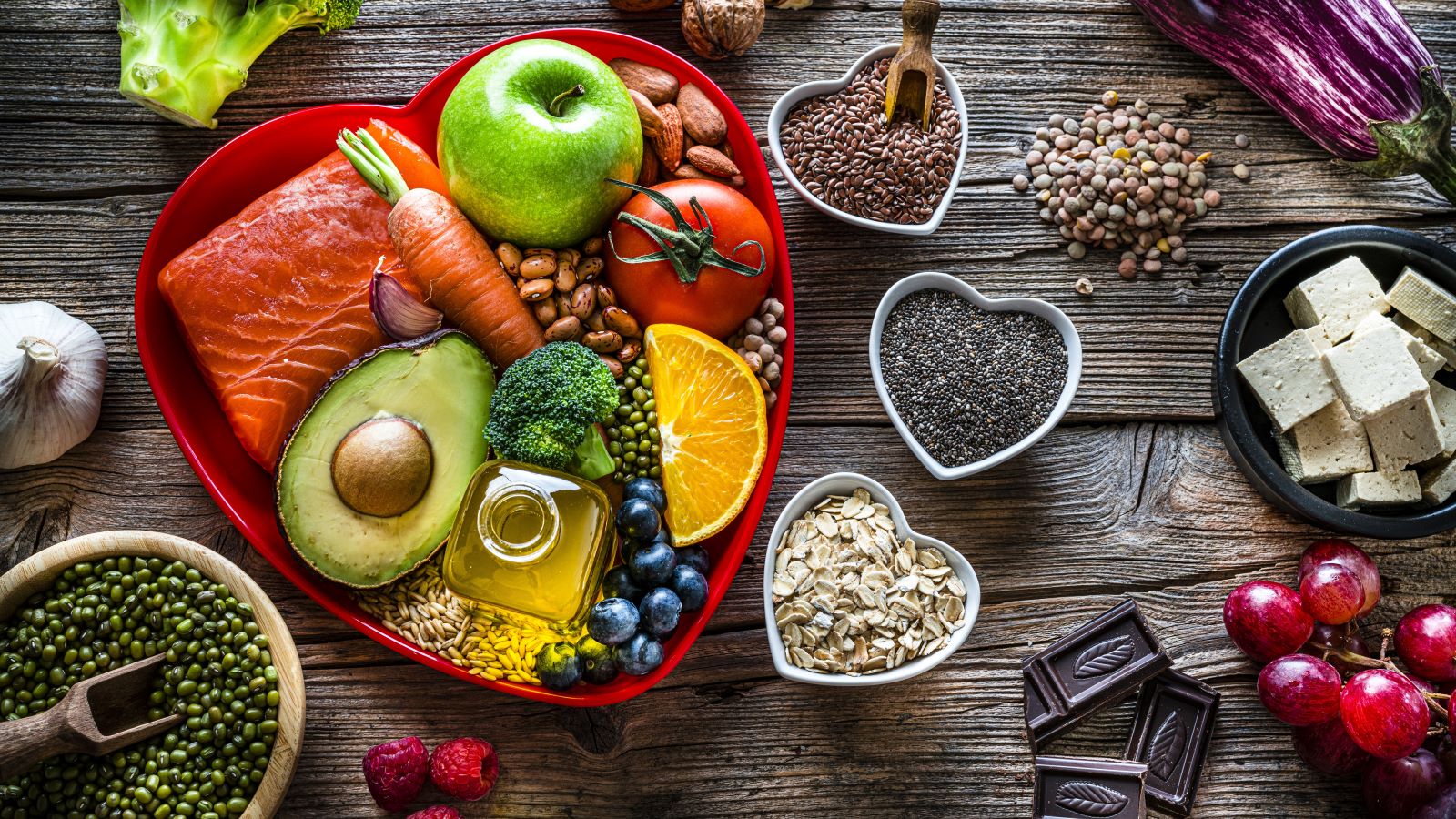<< Back
6 Best Foods for AFib

October 11, 2025
You probably know AFib affects your heart’s rhythm. But did you know that what you eat – and drink – can make a difference too?
We asked Brad Biskup, PA-C, a lifestyle and cardiovascular medicine specialist with the Hartford HealthCare Heart & Vascular Institute, for the best foods for your heart rhythm – and why other lifestyle factors matter, too.
How food helps your heartbeat
AFib, short for atrial fibrillation, happens when your heart’s electrical signals misfire, causing the upper chambers to beat out of sync.
“When in AFib, you can lose up to 20% of your heart’s output,” says Biskup. “It’s like your car that normally runs on eight-cylinders, can only run on five.”
What you eat plays a major role in how well your heart handles that strain.
“Caffeine, alcohol and salty foods can all throw off your fluid balance and strain the heart,” he says. “But foods rich in fiber, healthy fats and nutrients help everything run smoother.”
> Related: 4 Foods to Avoid When You Have AFib
This small change makes a big difference
If you’re managing AFib, one of the most effective changes you can make doesn’t start in the gym — it starts in the kitchen.
“One of the most powerful ways to reduce AFib episodes is losing just 10% of your body weight,” says Biskup.
A heart-healthy diet can help you get there, starting with a few smart swaps. Here’s your grocery list of AFib-friendly foods.
> Related: 6 Healthy Summer Meals That Are Good for Your Heart
1. Nuts and seeds
High in fiber, protein and omega-3s, nuts and seeds help lower inflammation and keep blood sugar steady.
They’re also an easy, portable snack that won’t spike your blood sugar or stress.
Tip: Eat a small handful, especially if you need a snack before bed.
2. Avocado
Not only are these delicious, but avocados are also full of healthy fats and potassium, which help regulate heart rhythm.
They’re also versatile, and can be worked into breakfast, lunch or dinner.
Tip: Spread half an avocado on hearty whole-grain toast – the kind you really have to chew.
> Related: 4 Reasons to Eat More Avocado
3. Hummus
This fiber-rich, plant-based dip is a great source of protein and fiber, which help keep your cholesterol and blood sugar in check.
It’s easy on your heart and adds flavor to just about anything, including veggies, wraps, crackers or sandwiches.
Tip: Use it in place of mayo on sandwiches – it adds flavor and nutrients without the extra fat.
> Related: 4 Reasons to Eat More Hummus
4. Greens
Hydrating and nutrient-dense, these foods are great for circulation and overall heart function.
Leafy vegetables also help regulate fluids — an important factor for those with AFib.
Tip: Think cucumbers, leafy lettuce or any green veggie with crunch.
> Related: The 8 Best Vegetables for Your Health
5. Seafood
Fish like salmon, tuna and shrimp are rich in omega-3 fatty acids, which can help reduce inflammation and keep your heart rhythm more stable.
They’re also a lean protein option that fits perfectly into a Mediterranean-style diet.
Tip: Grill or bake instead of frying, and pair with veggies or whole grains.
6. Dark chocolate
Good news: You don’t have to skip dessert. In small amounts, dark chocolate offers antioxidants that may support heart health and reduce inflammation.
Just remember — moderation is key. A little goes a long way.
Tip: Enjoy about one ounce of dark chocolate (the darker, the better) after dinner.
> Related: 6 Health Benefits of Dark Chocolate
Don’t skip the water
Your heart’s a pump, and it needs the right amount of fluid to work well.
“When you’re dehydrated, your heart has to work harder,” says Biskup. “When you’re well hydrated, everything flows more smoothly.”
Tip: You should need to urinate every 2–3 hours – that’s a good hydration check.
> Related: 5 Heart Healthy Exercises to Do Today
Lifestyle counts, too
Medication and medical care are essential for managing AFib. But lifestyle changes are what make the biggest difference day-to-day.
“You don’t have to overhaul everything,” says Biskup. “Just focus on small, steady changes – what you eat, how well you sleep, how you move and how you manage stress – it all adds up.”’
Because when it comes to your heart, consistency beats perfection every time.